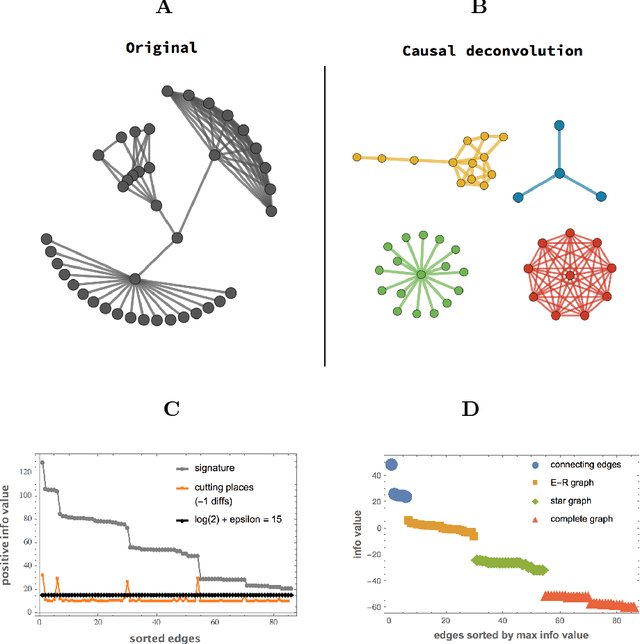Algorithmic Causal Deconvolution of Intertwined Programs and Networks by Generative Mechanism
Paper and Code
Sep 12, 2018



Complex data usually results from the interaction of objects produced by different generating mechanisms. Here we introduce a universal, unsupervised and parameter-free model-oriented approach, based upon the seminal concept of algorithmic probability, that decomposes an observation into its most likely algorithmic generative sources. Our approach uses a causal calculus to infer model representations. We demonstrate its ability to deconvolve interacting mechanisms regardless of whether the resultant objects are strings, space-time evolution diagrams, images or networks. While this is mostly a conceptual contribution and a novel framework, we provide numerical evidence evaluating the ability of our methods to separate data from observations produced by discrete dynamical systems such as cellular automata and complex networks. We think that these separating techniques can contribute to tackling the challenge of causation, thus complementing other statistically oriented approaches.
 Add to Chrome
Add to Chrome Add to Firefox
Add to Firefox Add to Edge
Add to Edge